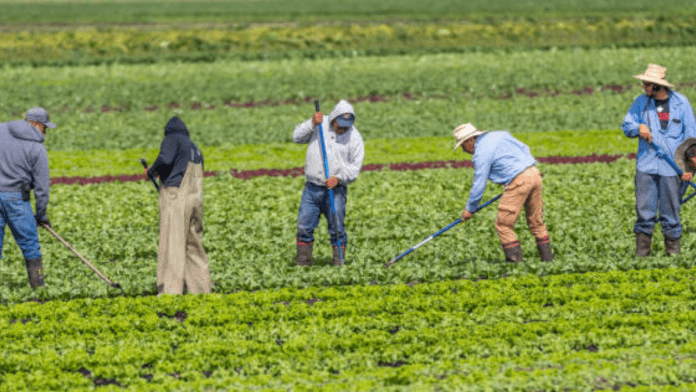News in Brief:
– France includes agriculture in “short-staffed” sectors, easing criteria for non-EU worker recruitment.
– Changes aim to alleviate local farmers’ labor shortages, aligning with EU-wide efforts to address agricultural workforce challenges.
In response to mounting challenges in the agricultural sector, France has taken decisive steps to ease recruitment criteria for non-EU agricultural workers. This move comes as part of broader efforts to alleviate labour shortages, particularly impacting local farmers.
Acknowledging the persistent discontent among farmers, Prime Minister Gabriel Attal fulfilled a promise by including agriculture in the list of “short-staffed” sectors. This designation aims to streamline the recruitment process for non-Europeans already working irregularly within France.
The inclusion of agriculture in the shortage sectors is poised to directly benefit local farmers grappling with approximately 70,000 vacancies annually. This shortage is especially felt during crucial periods such as fruit and vegetable harvests, where labour demands peak.
Key changes in criteria for foreign agricultural workers in France
FNSEA, France’s largest farming union, has long advocated for this inclusion, citing the need to address labour challenges exacerbated by European competition in labour costs. Agriculture Minister Marc Fesneau emphasised the importance of sovereignty and competitiveness for local producers.
The recent decree, published in the French Official Journal, introduces notable changes to the recruitment process. Irregular migrants seeking permits must now demonstrate three years of residency in France, down from the previous requirement of 10 years. Additionally, the number of required payslips has been reduced to 12 from 24.
France’s initiative aligns with broader trends across the EU, where countries are seeking to regularise the status of foreign workers to mitigate labour shortages. Germany, for instance, has introduced measures to attract skilled workers, while Italy and Spain have implemented similar initiatives to address aging populations and labor demands.
Reports from the European Commission and the European Parliament emphasise the importance of targeted labor migration from third countries to address skill gaps and labor shortages. While the decision has garnered support from various quarters, it has also faced opposition, particularly from far-right factions concerned about immigration implications.



